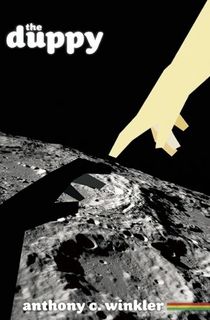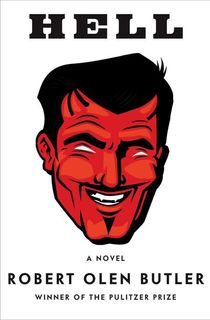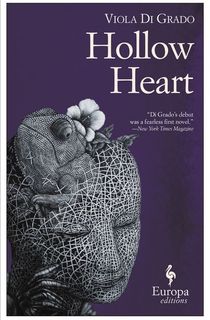It’s a tricky undertaking, writing a book about something you can’t thoroughly research or experience. You can’t die and come back again to report on your findings, so you have to be creative about it. What lies beyond inevitable death is the world’s greatest mystery, but many inquisitive writers with vivid imaginations, and extensive knowledge of a culture’s hereafter beliefs, have dared to make it the basis of a lasting magnum opus that more or less cements their literary reputations.
In these fictional works, death is not the end for the main character, but rather the beginning. They pass, by various means, into another spiritual world that parallels our own and must navigate an entirely new existence as a fully conscious ghost or demonic entity with unfinished business to wrap up before the books ends.
The central conflict is always the same. Will the deceased find eternal peace in their new state of being, or are they doomed to be tangled forever in the ongoings and memories of the living world, from which they cannot break their attachments?
Here are five brilliant books that set out to answer that very question, rife with each author’s own unique methods and philosophies towards dying and post-dying.

No Exit
“So this is hell. I'd never have believed it. You remember all we were told about the torture-chambers, the fire and brimstone, the ‘burning marl.’ Old wives' tales! There's no need for red-hot pokers. Hell is—other people!”
Three damned souls find themselves trapped together in a bare room without windows, distractions, or even toothbrushes. This, they quickly determine, is their personal hell, where their punishment for their lifetimes of debauchery, cowardice, and lack of empathy for others is each other’s insufferable company and endless unfulfilled time.
This is French existentialist philosopher Jean-Paul Sartre’s most famous and most mind-provoking play, the text from which his famous quote “Hell is other people” derives. Using these three main characters as his puppets wearing both literal and metaphorical strings, Sartre invents and orchestrates a claustrophobic afterlife and nightmare where the only demons present are the mistakes human beings cannot move on from.
No Exit is unique on this list for being the only text written as a stage play, but it is included because its contribution to the world of literature about the very real and very daunting possibility of hell has had nearly as significant a cultural impact as Dante Alighieri’s Inferno.

The Duppy
"I not sitting with no sheep 'pon no cloud! I am Jamaican duppy! We don't walk wid sheep, we curry dem!"
What could be more of a shock than discovering that everything you thought you knew about the next world is wrong? In The Duppy, a Jamaican shopkeeper named Baps passes away, becomes a “duppy” spirit, and rides a minibus to what he expects will be a flawless paradise waiting for his entry. The fact that heaven’s mode of transportation is a minibus jampacked with other deceased souls should have been enough of a hint; this isn’t going to be the five-star hotel experience Baps is expecting as a reward for living a relatively good life.
In fact, heaven is so much like his native Jamaica, rife with what he considers to be imperfections, that Baps has reason to suspect something is greatly amiss. Even the characters he encounters aren’t the celestial guardians he was hoping would make his second life pleasant, calm, and comfortable. They are, like himself, complicated, crass, and relentless in their humanity.
This is one of the strange but outstandingly written novels about his native country that contributed to Winkler’s grandiose literary success and won him the Gold Musgrave Medal by the Institute of Jamaica in 2014. This was a year before Winkler himself died and perhaps boarded a minibus of his own.

Peony in Love
“When people are alive they love, when they die, they keep loving. If love ends when person dies, that is not real love.”
In nineteenth-century China, Peony is a young, precocious, and intellectually gifted woman in love, and it is this very love which ultimately claims her life too early. After wasting away from self-imposed starvation to escape an unwanted arranged marriage, Peony transitions into a limbo-esque postmortem eternity as a “hungry ghost,” as her grieving family fails to perform the correct funerary rituals which would allow her to properly ascend to heaven.
Peony, headstrong even in death, eventually embraces the freedom of being a wandering spirit and explores the different avenues previously forbidden to her as the only daughter of a strict high-status family. As a ghost with no obligations or restraints, she is now at liberty to explore the world, write poetry and commentaries on the opera, bond with other women both dead and living, and assign herself the role as guardian over the man she truly adores.
See utilizes her main character as an opportunity to explore women’s relationships to family duty, literature, romance, sexuality, and each other in a novel that reads like the poetry Peony enthusiastically devotes her afterlife to. Peony, both as a living, breathing human and as a ghost, doesn’t just fall in love with a man, she falls in love with life.

Hell
“And so, given the musical sensibilities Hatcher treasured in his earthly life, it is hard to exaggerate the severity of his torture at standing naked in his tiny kitchen in Hell as former FBI director J. Edgar Hoover sings a Bee Gees disco song backed by a full studio orchestra and Robin and Maurice.”
Welcome, once again on this list, to hell. Hatcher McCord, a grounded evening news presenter with an unfortunate moral track record, has died and found himself trapped in a hell full of freaks and weirdos. It’s perhaps the world’s worst celebrity party, and he never accepted an invitation.
It’s Sartre’s “Hell is other people” concept, but the “other people” are all famous. His assigned roommate is Anne Boleyn, who spends her afterlife obsessing over her ex-husband Henry VIII and making people uncomfortable with her self-decapitation tricks. William Shakespeare’s in hell too; his contributions of classic literature haven’t earned him a Get Out of Jail Free card for his many transgressions. And surprise of all surprise, all the former ex-presidents of the United States are there too, to pay for their buffet of tax evasions, war crimes, and human rights violations.
Naturally, McCord desperately wants to escape from this loony bin, and he consults the ultimate expert, Dante’s muse and guide Beatrice, for advice for how to flee the coup. Butler collected a Pulitzer Prize for his short story collection A Good Scent from a Strange Mountain in 1993, and his Hell can be viewed as something of spiritual sequel in terms of quality and technique.

Hollow Heart
“I'd understood that grief is a Russian nesting doll: it never ends, it just hides inside new grief, and every new instance of grief contains all the previous ones. So my grief was invisible but it was there, inside every stupid daily disappointment.”
A warning for potential readers, this is perhaps the darkest book on the list, as it begins with a violent suicide, which many may find distressing. Dorotea Giglio, Grado’s protagonist, takes her only life in the very same bathtub where her mother gave birth to her, completing the cycle of life and death on a tragic and ironic note. Her tortured soul subsequently becomes stranded in limbo.
Unable to let go or even reconcile herself to her deeply troubled past, Dorotea wanders among the living, attends her own funeral as a morose observer, and continues to follow her work schedule at a stationary store, not knowing what else to do with herself or how to successfully pass on into the next life. Dorotea may be detached from her physical body, but the bonds that bind her to her life are still as strong as iron, and she takes the time to explain to her readers why she’s so reluctant to fully surrender to death. She watches her own corpse decay as she struggles to draw closer and closer to the conclusion that yes, her life is over, but perhaps there is a better and freer afterlife waiting for her if she gave it a fair chance.
This is a morbid and experimental story from the mind of Grado that has haunted the literary world on an international basis. The Italian-to-English translation by Antony Shugaar was a finalist for the PEN Literary Award for Translation. The language of death is, as proven by Hollow Heart, achingly universal.


